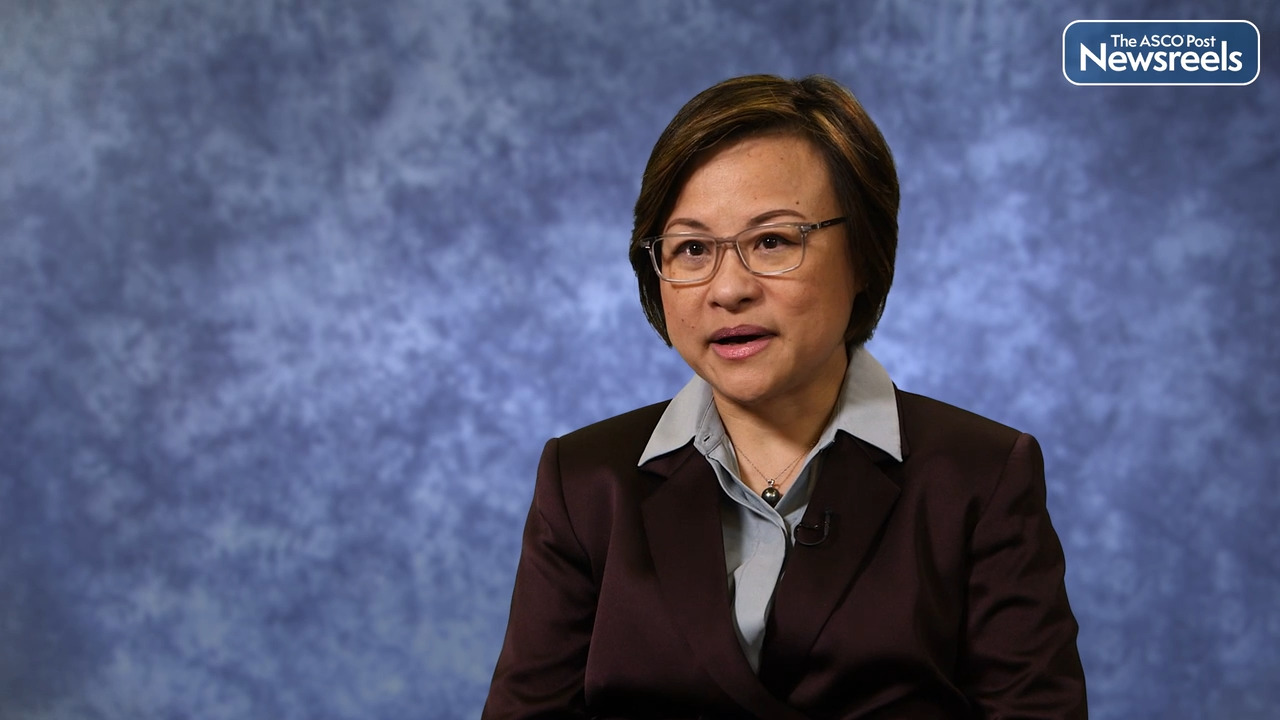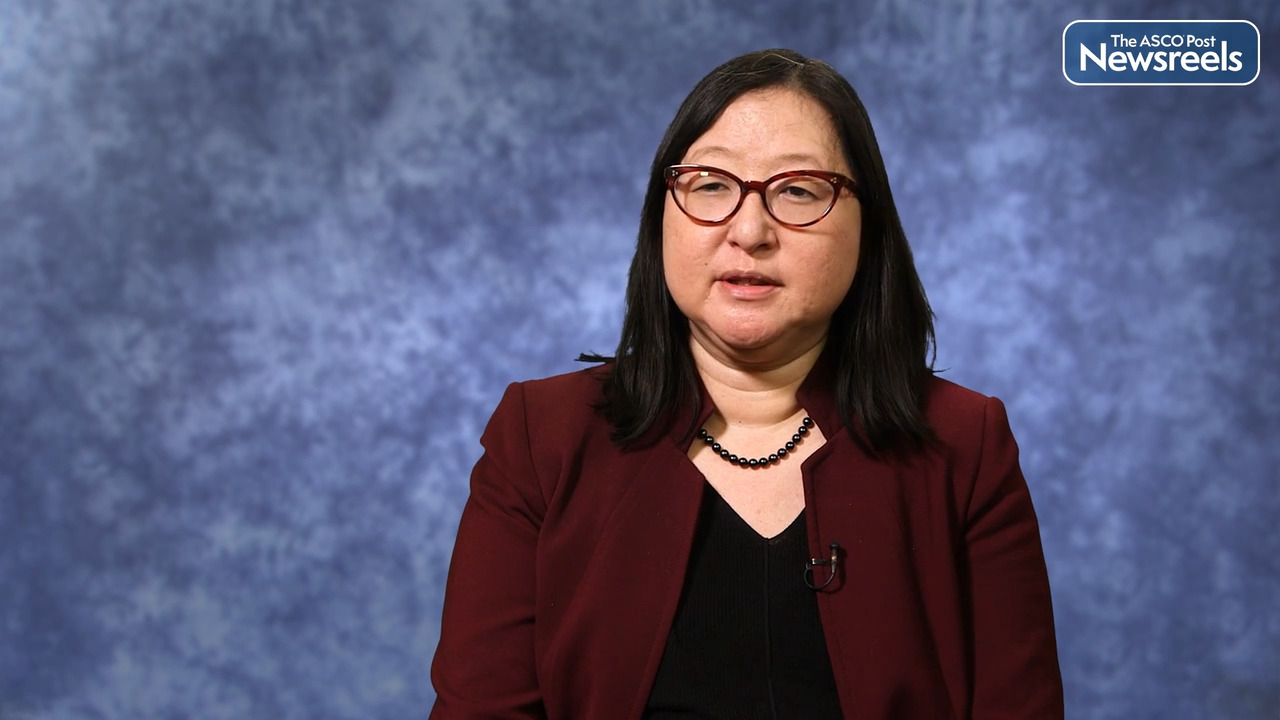Transcript
Disclaimer: This video transcript has not been proofread or edited and may contain errors.
The Alpine study is a randomized phase-three trial comparing zanubrutinib to ibrutinib in relapsed/refractory CLL patients. As a reminder, ibrutinib is our first-in-class BTK inhibitor, which has been transformative for CLL therapy but has significant adverse events. Zanubrutinib is a next-generation drug, which is more specific for BTK and also maintains drug levels throughout the dosing interval, potentially allowing greater BTK occupancy. Alpine was designed to assess the efficacy and safety of zanubrutinib in comparison to ibrutinib. The population was an all-comer relapsed/refractory population with a median of one prior therapy, which was chemoimmunotherapy by and large. The randomization was stratified by age, geographic area relapsed/refractory disease, and deletion 17p or TP53 aberrancy. The findings that I presented at ASH this year demonstrated that zanubrutinib has a superior progression-free survival compared to ibrutinib in this setting with a hazard ratio of 0.65 and a two-year landmark of 79% progression-free survival for zanubrutinib versus 67% for ibrutinib, so a 12% improvement.
This was seen across all subgroups of disease, but in particular, the high-risk deletion 17p/TP53 aberrant patients had a 22% improvement in their two-year landmark PFS. The median PFS with ibrutinib was reached at 36 months, but not reached with zanubrutinib. In addition to this, zanubrutinib continues to have a higher overall response rate than ibrutinib, which was actually the primary endpoint of the study, but PFS was a key secondary endpoint that we reported here. It was event-driven after 205 events.
In terms of safety, zanubrutinib was also safer than ibrutinib. There were fewer drug discontinuations, fewer drug holds, fewer drug interruptions for toxicity. Perhaps most importantly, the cardiac safety was significantly improved with fewer cardiac serious adverse events. Only one drug discontinuation for a cardiac adverse event with zanubrutinib versus 14 for ibrutinib, and perhaps most notably, no cardiac death with zanubrutinib versus six with ibrutinib.
In terms of other toxicities, the most common toxicity was neutropenia, which was 23% grade three or higher with zanubrutinib versus 22% with ibrutinib, so pretty comparable, although there were fewer associated infections with zanubrutinib at 9% versus 13% with ibrutinib. COVID-19 was the next most common adverse event and the most common adverse event leading to death at about 4% in zanubrutinib and 5% in ibrutinib. Hypertension was balanced between the arms.
So in summary, the Alpine study demonstrated that zanubrutinib has a superior progression-free survival to ibrutinib in relapsed/refractory CLL patients and is also better tolerated with a particularly better cardiac profile, which is one of our key points we worry about with BTK inhibitors. The results of this study are potentially practice-changing, demonstrating that zanubrutinib is a new standard of care for CLL.
Are there any follow-up studies you want to mention?
Although this was the final analysis of progression-free survival, there will be ongoing analysis and we'll certainly be interested in more mature data as this is about 30 month follow up. We're also interested in studies that are evaluating combination of zanubrutinib and venetoclax, or zanubrutinib and other Bcl-2 inhibitors looking potentially at time limited therapy similar to what's been done with other BTK inhibitors, mostly ibrutinib to date, but also acalabrutinib.





